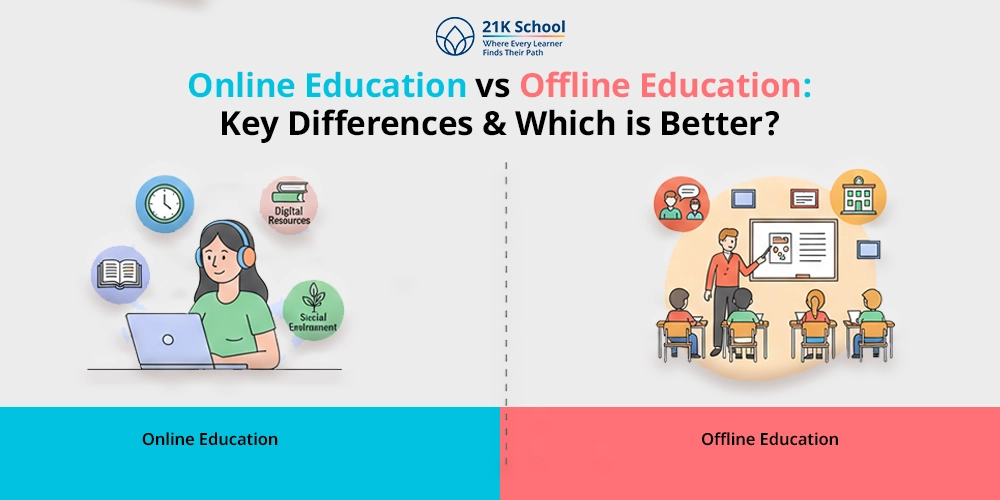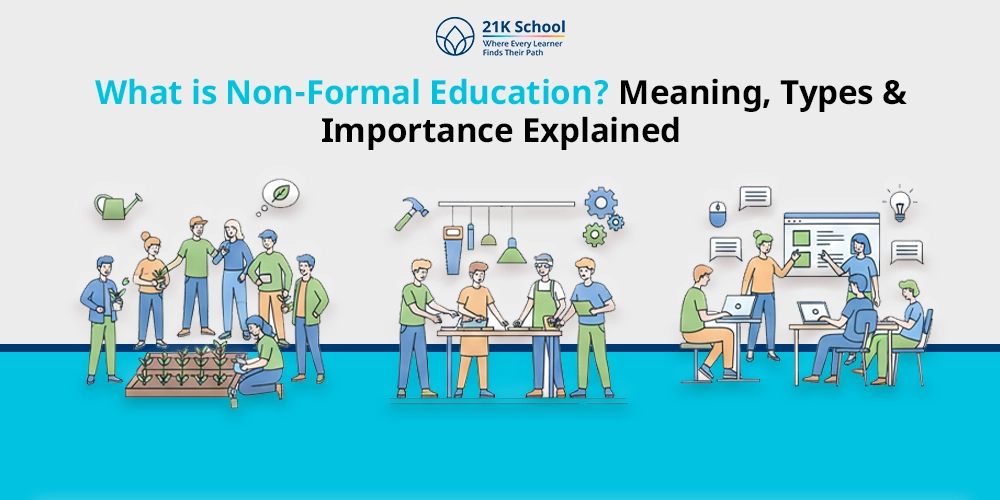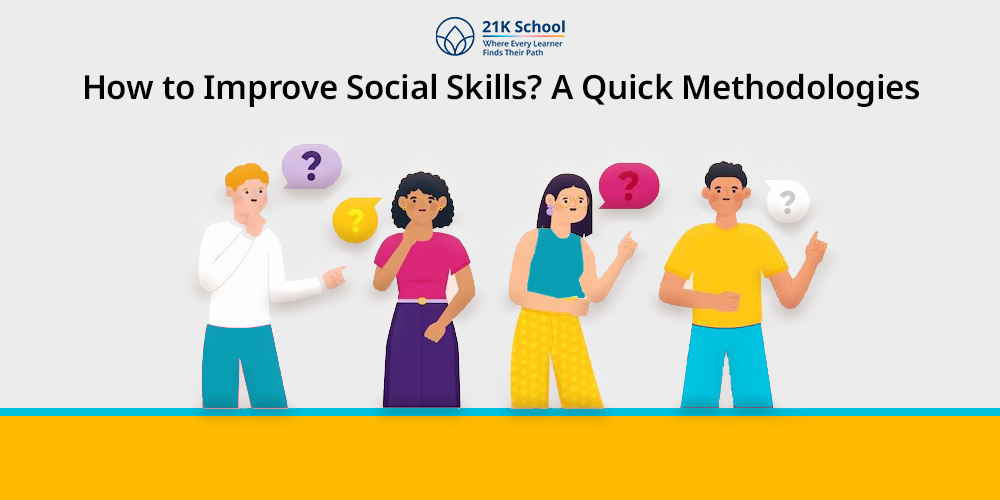
Are you an introvert or don’t know how to socialise with others, here is how you can improve your social skills?
Social skills are the foundation of child growth, improve communication skills and development. Integration of the skills from a young age can be beneficial.
The basic skills each learner should work on includes understanding real life situation communication skills , expressing emotions, responding, building and maintaining relationships.
Facilitators in the classroom and parents in daily life should help learners to build and improve social skills. To do so parents and facilitators can go through this blog for effective implementation.
Contents
- 1 What are Social Skills?
- 2 Why Social Skills are Important for Students?
- 3 12 Methods on How to Improve Social Skills
- 3.1 1. Practice Active Listening
- 3.2 2. Enhance Your Non-Verbal Communication
- 3.3 3. Work on Empathy
- 3.4 4. Become More Assertive
- 3.5 5. Manage Conflict Effectively
- 3.6 6. Giving and Receiving Compliments
- 3.7 7. Ask Open-Ended Questions
- 3.8 8. Engage in Small Talk
- 3.9 9. Join Social Groups or Events
- 3.10 10. Maintain Body Language
- 3.11 11. Get Feedback
- 3.12 12. Reflect on Your Social Interactions
- 4 3 Top Benefits of Having Social Skills
- 5 Conclusion
What are Social Skills?
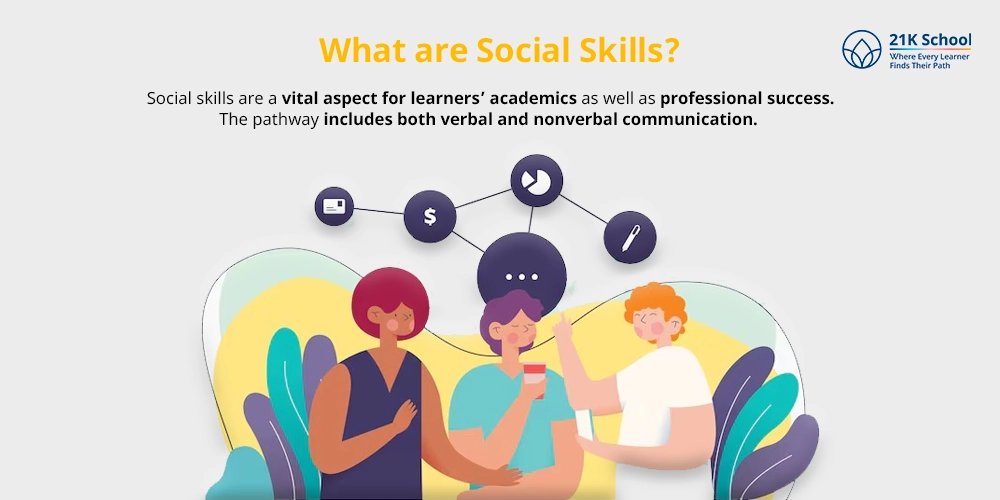
Social skills are a vital aspect for learners’ academics as well as professional success. The pathway includes both verbal and nonverbal communication.
Remember it is important to take your time, understand others, respond clearly and express emotion in correct manners.
Social skills include various types of traits and behaviours such as conversational skills, eye contact communication skills , empathy , emotional intelligence and so on.
Why Social Skills are Important for Students?
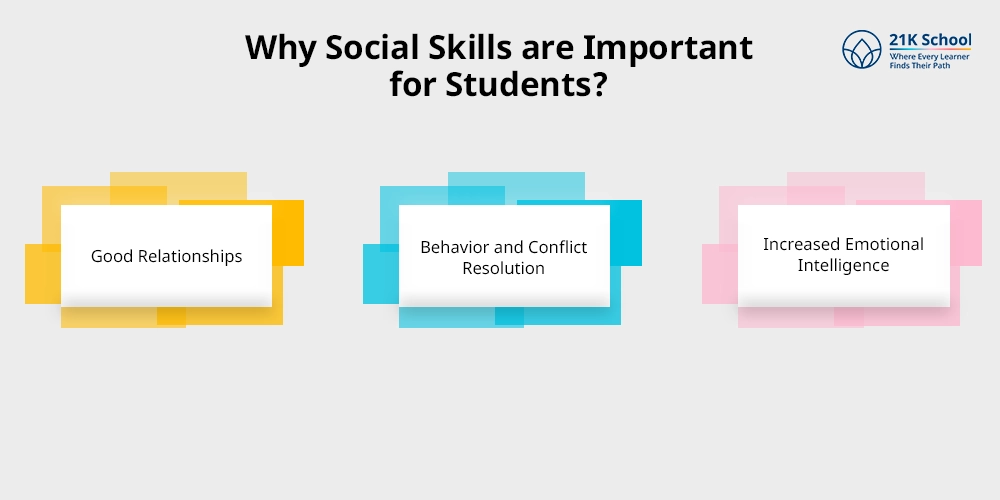
For students, social skills are a priority which help them to strengthen their relationships, improve their behavior with surrounding people and increase emotional intelligence which is key to personal growth.
Here are some elaboration of importance of social skills one can consider:
1. Good Relationships
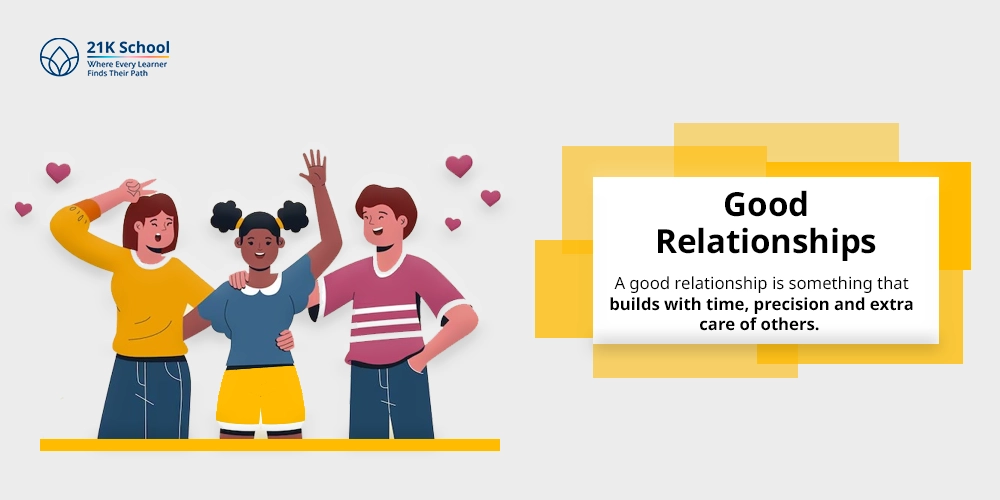
A good relationship is something that builds with time, precision and extra care of others.
Creating a healthy relationship with teachers and peers leads to a better and positive learning environment .
2. Behavior and Conflict Resolution
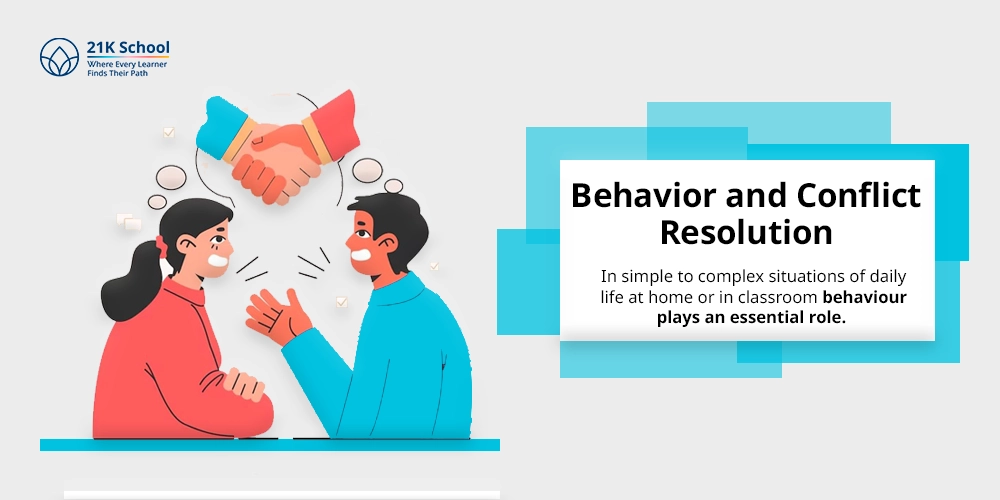
In simple to complex situations of daily life at home or in classroom behaviour plays an essential role.
Whether it’s taking permission to go outside to play outdoor activities or raising your hand and waiting to speak, learners’ behaviour should be according to the environment.
3. Increased Emotional Intelligence
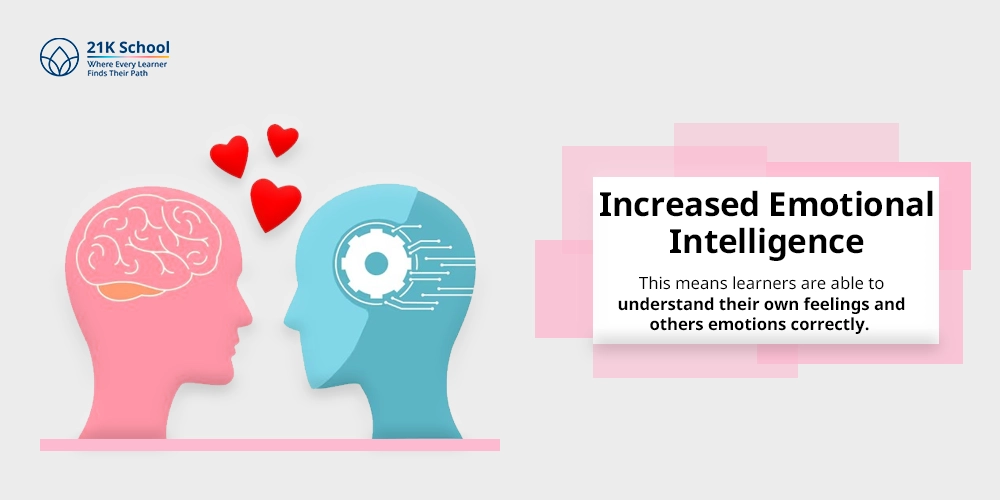
One of the important roles of social skills in students’ lives is it increases emotional intelligence. This means learners are able to understand their own feelings and others emotions correctly.
Students with strong social skills can easily develop emotional intelligence which helps them to handle stress and promote a growth mindset .
12 Methods on How to Improve Social Skills
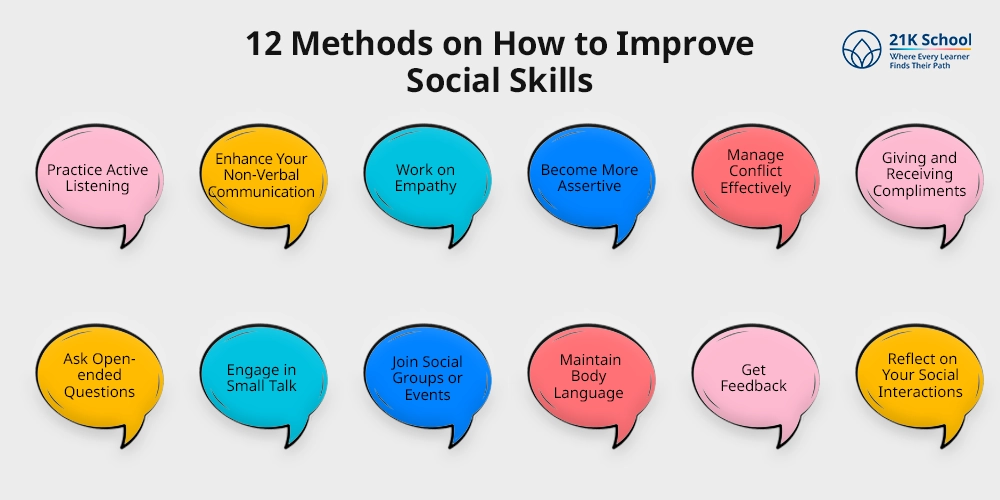
To build social skills in a learner one needs to implement effective methods for improvement. Some essential ways to consider are:
1. Practice Active Listening
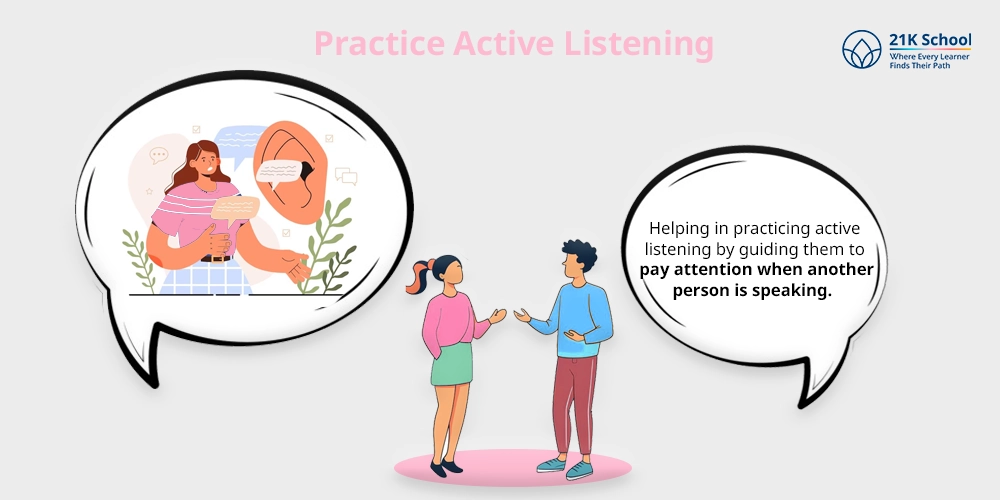
Helping in practicing active listening by guiding them to pay attention when another person is speaking.
They should avoid distractions or multiple approaches to build active listening skills.
Learners can make eye contact while communicating and ask them to simplify if you don’t understand and summarise the whole conversation.
2. Enhance Your Non-Verbal Communication
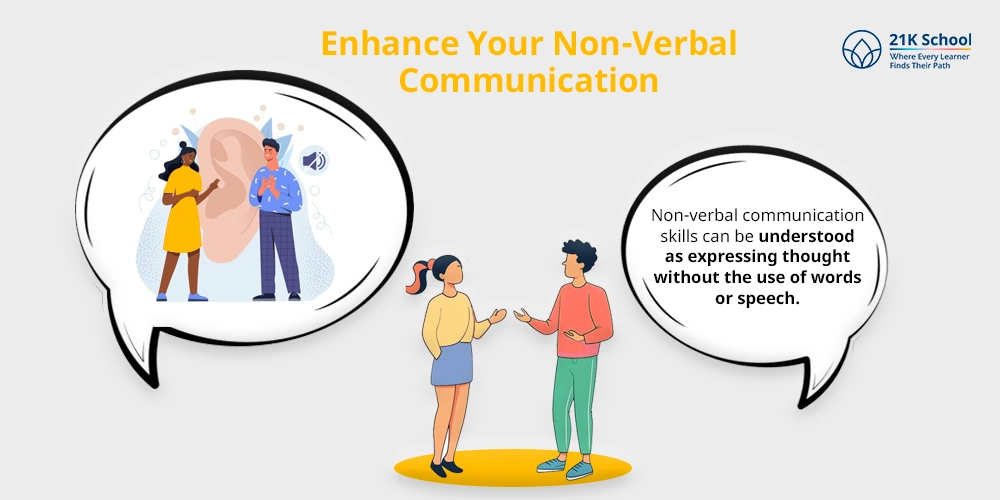
Non-verbal communication skills can be understood as expressing thought without the use of words or speech.
It may include facial expressions, gestures, signs, posture and any other form of communication.
Developing nonverbal communication allows individuals to enhance social skills, allows them to understand others’ feelings and develop relationships among individuals.
3. Work on Empathy
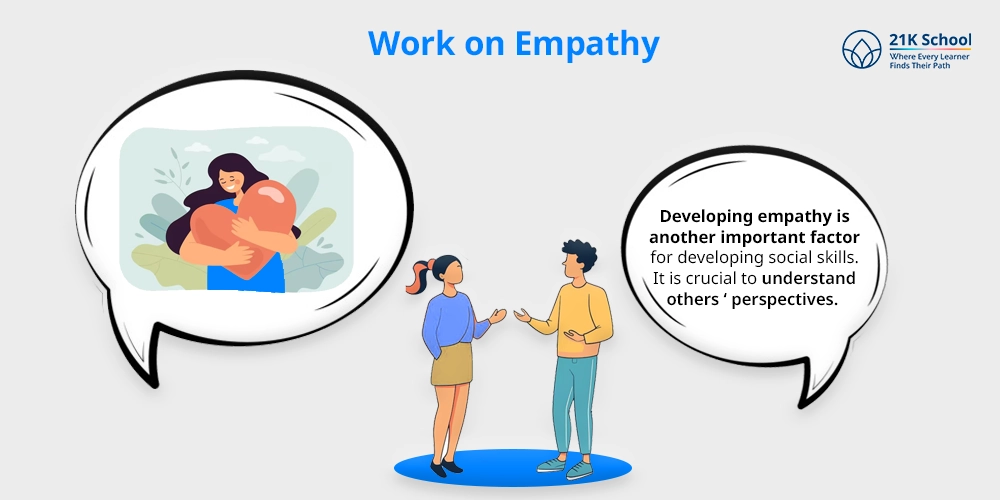
Developing empathy is another important factor for developing social skills. It is crucial to understand others ‘ perspectives.
It builds trust, belief and strength in a relationship which leads to long term connection. By this way learners can identify the right emotion in the right situation.
4. Become More Assertive
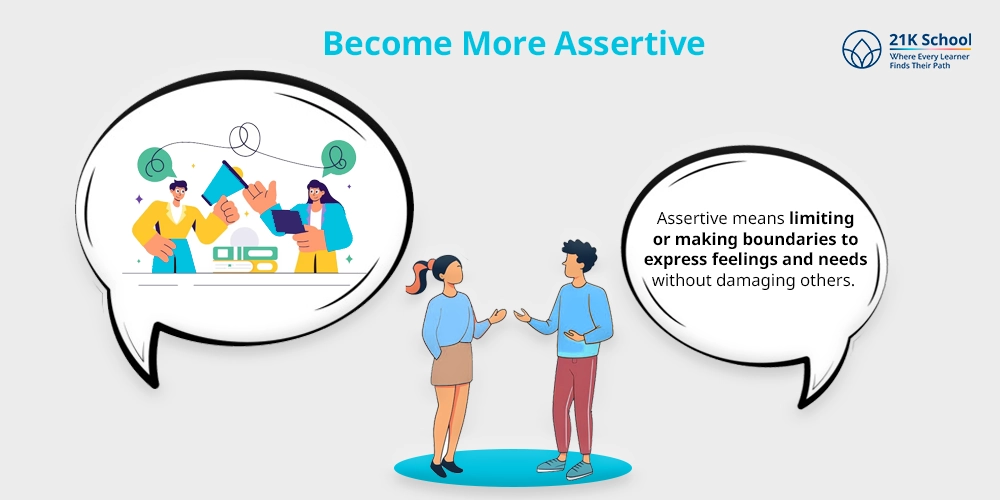
Assertive means limiting or making boundaries to express feelings and needs without damaging others.
Assertiveness skills build confidence , set a clear goal and effective participation in the conversation.
5. Manage Conflict Effectively
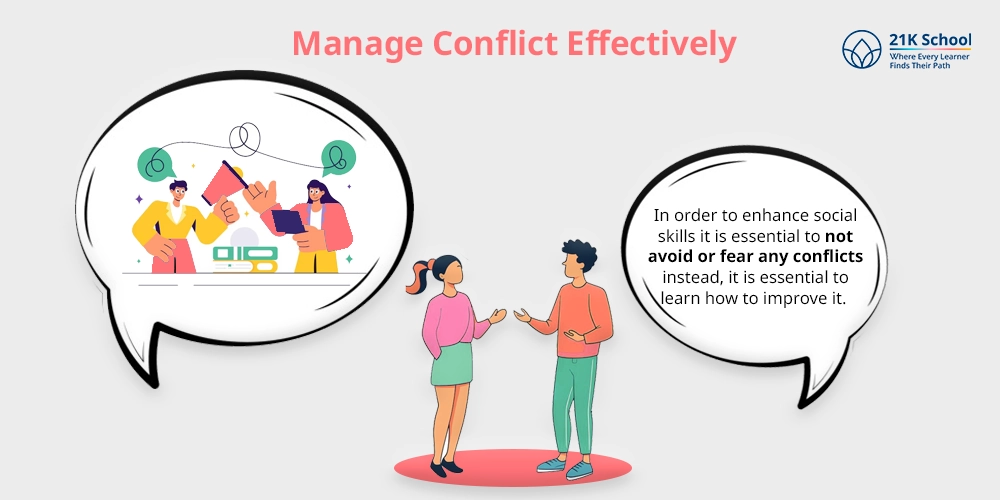
In social relations, conflict is a common part, but in order to maintain proper relations and socialisation, it is essential to manage conflict effectively.
In order to enhance social skills it is essential to not avoid or fear any conflicts instead, it is essential to learn how to improve it.
It is also noted that conflict enhances the strength between two relationships in order to gain proficiency in learning. Taking conflicts in a healthy way helps in building trust and avoiding future disagreements.
6. Giving and Receiving Compliments
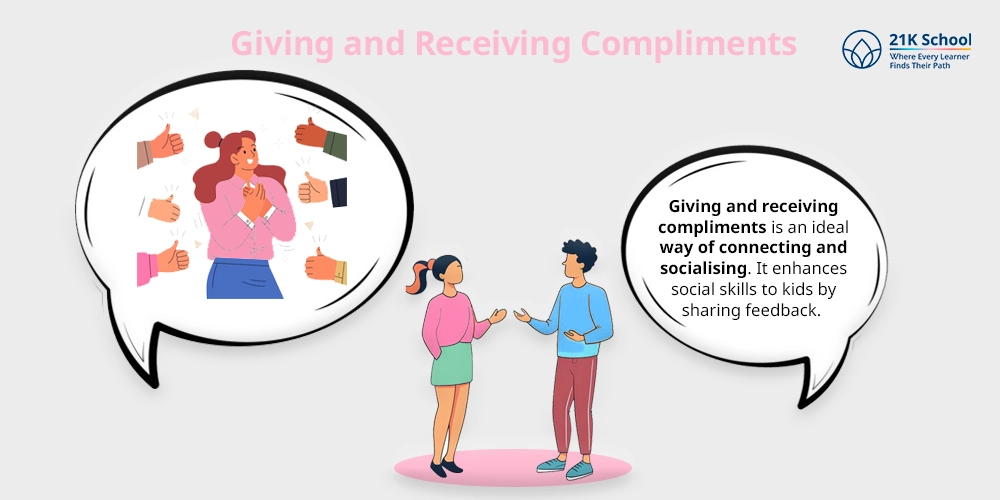
Giving and receiving compliments is an ideal way of connecting and socialising. It enhances social skills to kids by sharing feedback.
By this way learners explore others’ perspectives and remember the compliment they are giving. A positive compliment builds confidence. While negative gives a chance of improvement.
7. Ask Open-Ended Questions
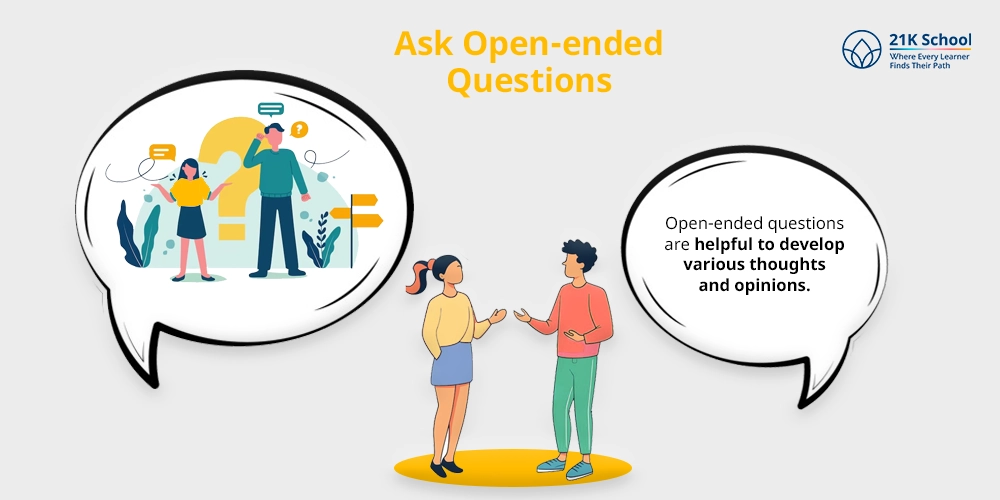
Open-ended questions are helpful to develop various thoughts and opinions. It is essential to build critical thinking skills .
Learners can ask open ended questions which leads to classroom and student engagement . Encourage for indepth answers instead of yes/no.
8. Engage in Small Talk
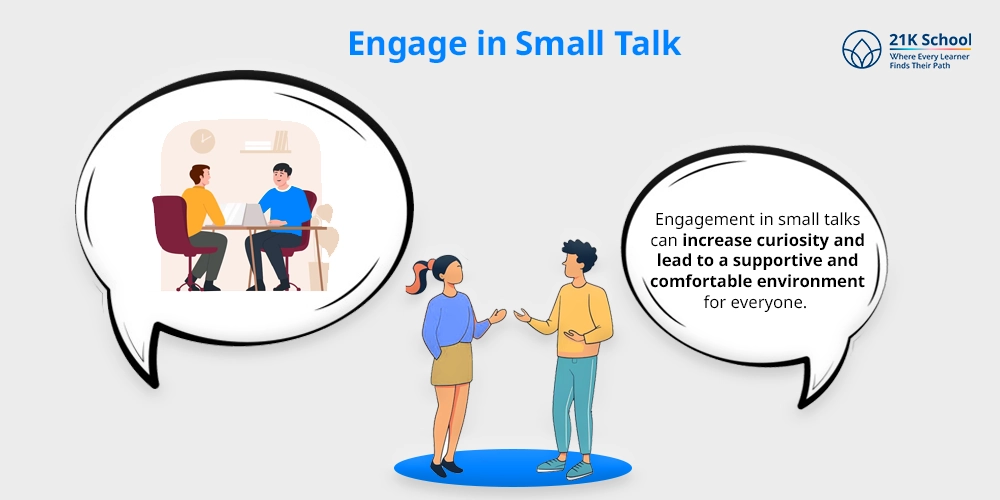
Engagement in small talks can increase curiosity and lead to a supportive and comfortable environment for everyone.
By focusing on various engaging activities can improve social skills such as encouraging initiating conversation, active listening and effective response.
9. Join Social Groups or Events
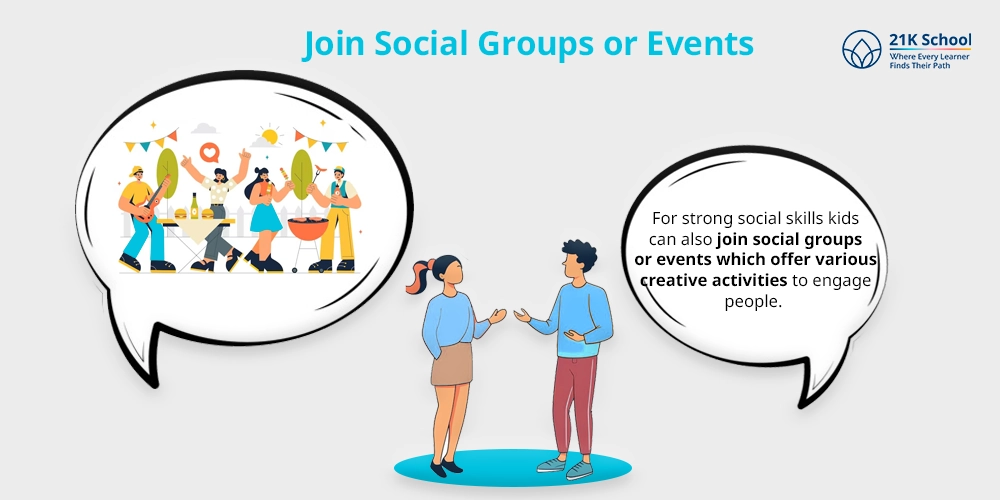
For strong social skills kids can also join social groups or events which offer various creative activities to engage people.
Fun learning activities such as games, debates, group projects etc. Attending this kind of activity that increases curiosity is an ideal way to escape from intense learning or to refresh your mind.
10. Maintain Body Language
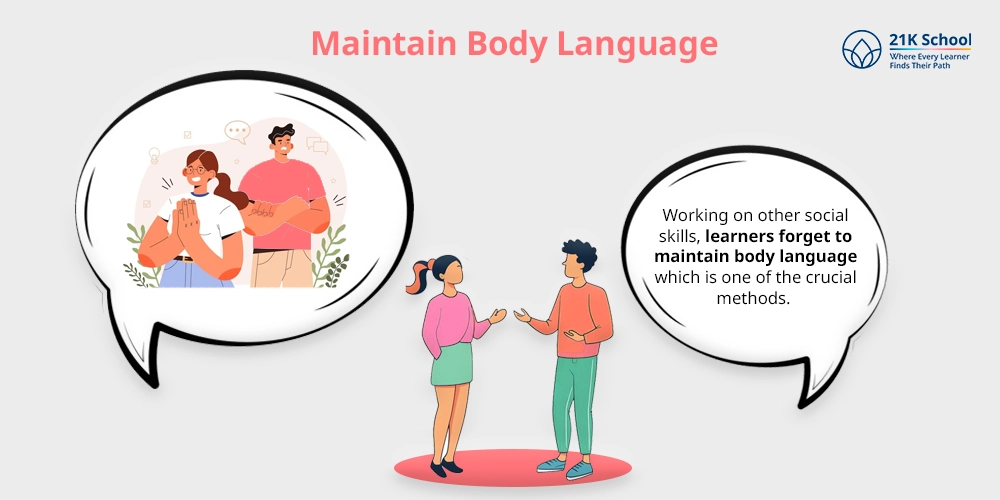
Working on other social skills, learners forget to maintain body language which is one of the crucial methods.
Having a positive body language increases the chances to connect with others and collaborate for various creative activities.
Learners can avoid nervousness, anxiety and fear of talking with new people. This enhances the collaborative skill of individuals.
11. Get Feedback
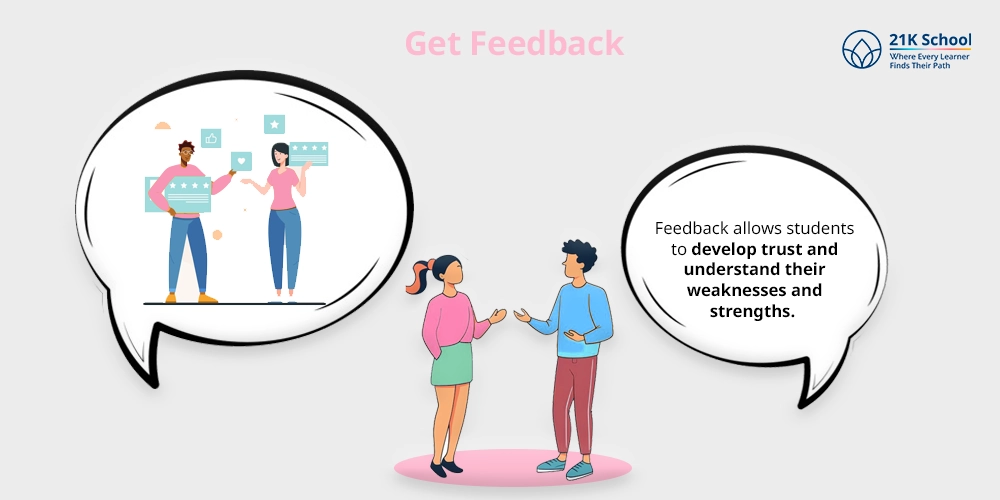
Feedback allows students to develop trust and understand their weaknesses and strengths.
This allows individuals to understand their weaknesses and strengths as well as allows individuals to comprehend others viewpoints. Through giving and receiving feedback students can easily develop social skills.
12. Reflect on Your Social Interactions
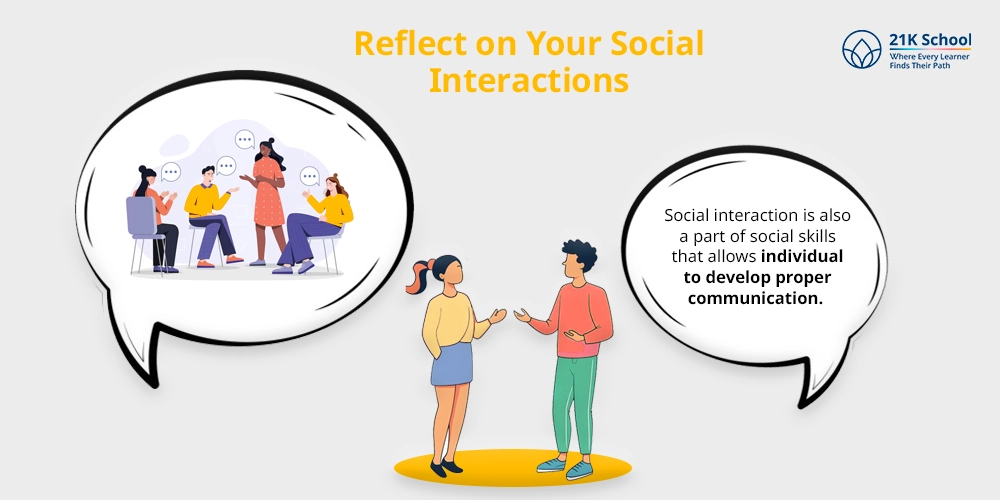
Social interaction is also a part of social skills that allows individuals to develop proper communication.
Students can take time to think and find out the best solution. Self reflection helps them to understand the strength and areas to grow.
3 Top Benefits of Having Social Skills
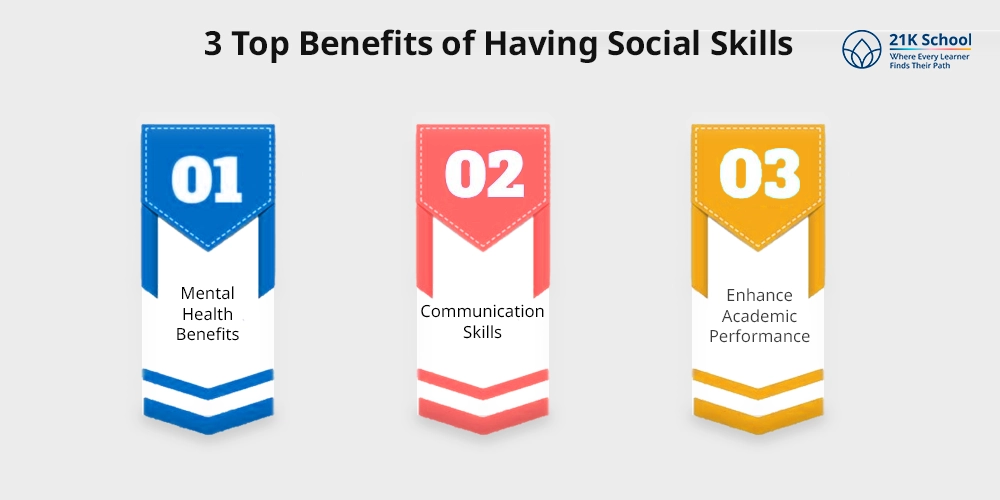
Social skills are a beneficial approach specially for students academic growth and personal development.
Understanding the benefits or advantages increase the confidence and curiosity to implement effectively. Some common benefits are:
1. Mental Health Benefits
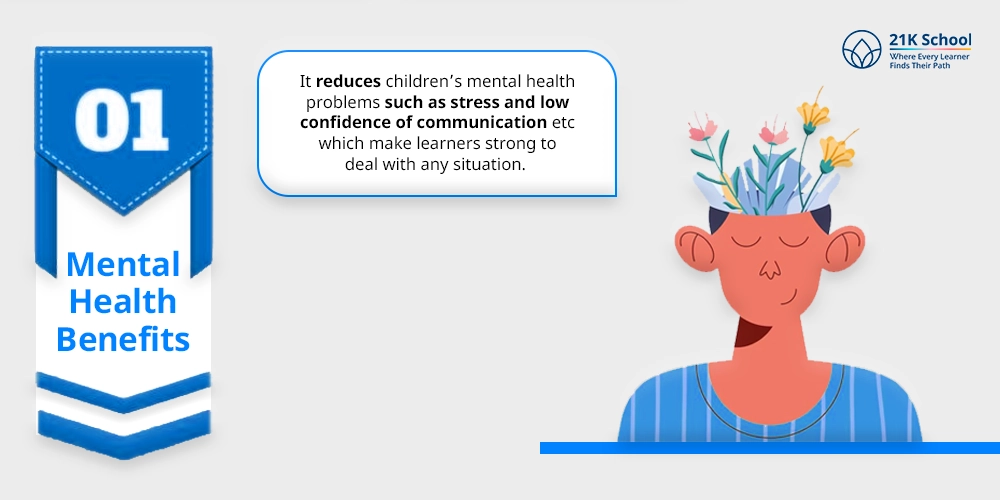
It reduces children’s mental health problems such as stress and low confidence of communication etc which make learners strong to deal with any situation.
It is also effective to improve critical thinking and problem solving skills .
2. Communication Skills
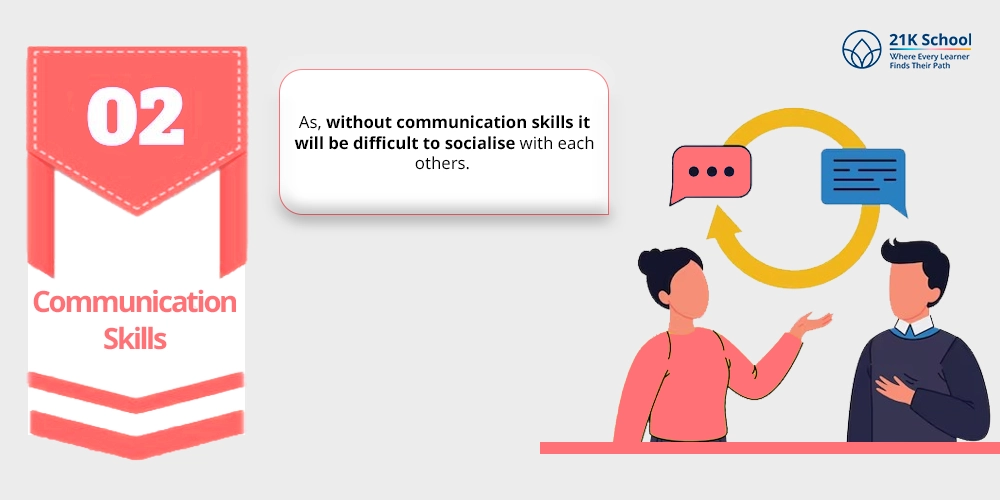
Both social and communication skills are related to each other. As, without communication skills it will be difficult to socialise with each others .
Social skills also help students to develop interacting habits and collaborative learning among children. Communication skills can include both verbal and nonverbal communication skills.
3. Enhance Academic Performance
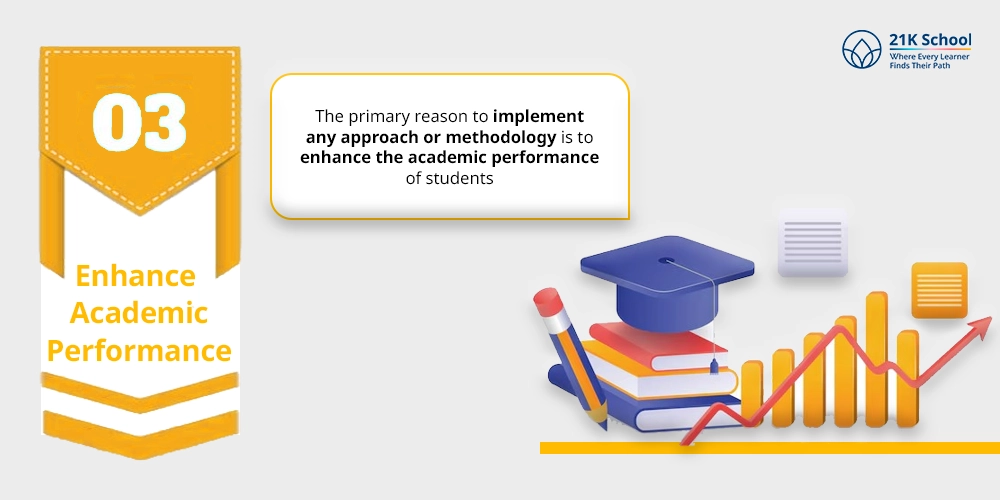
The primary reason to implement any approach or methodology is to enhance the academic performance of students.
It is seen that students with strong social skills perform better and score high in their academics.
Conclusion
Improving social skills needs time, practice and precision. However the impact of these skills in academic and personal life is unbelievable.
Learners who are looking for growth and academic achievement can implement social skills to prepare for future challenges in career and real life.
Start with practicing small changes like active listening to express correctly in a classroom setting or home to achieve mental, physical and social benefits.
To explore more on social skills go through 21K School official website.


